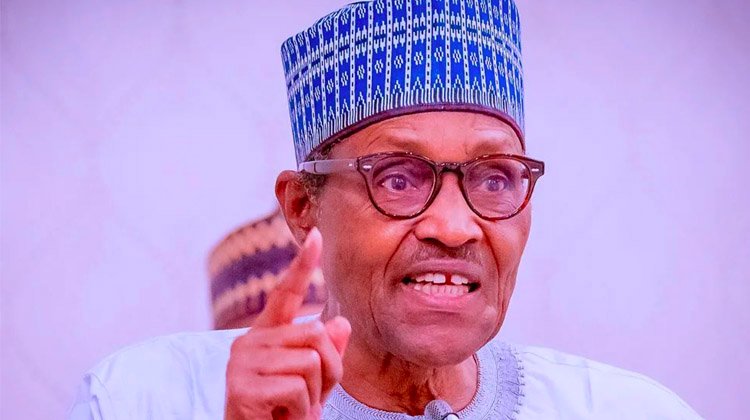
THE revelation by the President, Major General Muhammadu Buhari (retd.), that the Abuja–Kaduna train kidnappers failed to release all their remaining victims as agreed reinforces the argument against paying ransom to, or making deals with criminals. It also highlights the need for the government to adopt an inflexible posture against terrorists, rescue all kidnap victims, neutralise, and punish the perpetrators. As such, the move by the Zamfara State Government spelling the death penalty for kidnappers is welcome and should be adopted by other states.
Kidnappers operating under the tag of “bandits” and other terrorist groups have created a monstrous multibillion-naira business. One newspaper calculated that so far, the train kidnappers had realised at least N2 billion in ransom payment from the 47 persons they had released as of August 20. Twenty-three others remain in their captivity.
Regrettably, the government demonstrates helplessness amid the epidemic of abductions for ransom across the country. It should devise a new approach to secure the release of the 23 persons still being held after 150 days by August 25 and other kidnap victims. Buhari and the security agencies can do better; the abductees are on Nigerian soil, not in a foreign land.
Yes, Buhari’s explanation that the security forces had refrained from frontal military attack on the camps of the felons for fear of harming the victims resonates. Indeed, it is a standard consideration by governments to avoid direct military rescue operations if there is reasonable prospect that the victims could be killed or otherwise endangered.
However, there should be greater effort to develop the capacity to neutralise kidnappers and recover their captives safely. In this, all options should be on the table. Instead of futilely hoping that the terrorists would “repent,” government should deploy all its intelligence and military assets to apprehend the criminals and make them face the full wrath of the law.
At a meeting with the relatives of the kidnapped victims of the Abuja-Kaduna train attack, Buhari lamented the failure of the kidnappers to honour their promise to release the victims after government had released their (bandits’) relatives. A presidential spokesman, Garba Shehu, said, “The government also released seven children of the members of the terrorist gangs, as demanded, but they reneged in releasing the train passengers.” This is very discomfiting. Only in a failed state is a government reduced to such pitiable position. Serious governments avoid negotiating with terrorists.
Terrorists cannot be trusted as some northern states’ governors have found out the hard way. Imprudent amnesty plans not backed by law were tried; money was paid to the bandits as well as livestock and grains, but they went back to the more rewarding venture of crime. They are getting richer, bolder, and more dangerous. Governor Nasir el-Rufai recently disclosed that the terrorists had formed a parallel government in some parts of Kaduna State. Terrorists have formed similar ‘administrations’ in parts of Katsina, Niger, Zamfara, Sokoto, Borno, Yobe, Adamawa and Plateau.
Zamfara and other states that have legislated the death penalty should therefore scrupulously enforce the law, set up local security agencies, arrest and prosecute the criminals.
Buhari should radically shake up the intelligence agencies to make them more efficient. The military should develop special military operations capability to efficiently undertake hostage rescue and deadly commando raids against terrorists, kidnappers, their camps and hideouts.
Terrorism has been ravaging the country since 2009, presenting a new type of threat. Kidnapping en masse, headlined by the Chibok schoolgirls snatch in 2014, is rife. There has been more than enough time for the military, the State Security Service, and the police to have developed special skills in response to the new challenges. The storming of the United States Embassy in Tehran, Iran, in 1979 where 52 persons were held hostage and a botched attempt to rescue them in April 1980 prompted the US to create special military units to among others, rescue American hostages anywhere in the world.
The Nigerian government should do likewise. It can then take calculated risks in freeing captives based on reliable intelligence assessment of success chances and minimal risk to hostages. The police should replicate the US Federal Bureau of Investigations’ Hostage Rescue Team, an elite tactical unit that responds to domestic hostage situations. Algeria created its Special Intervention Regiment in response to long-running Islamic insurgency and hostage-taking. India upgraded some of its Army, Air Force and Navy Special Forces to specialise in counterterrorism and hostage rescue as terrorist attacks increased.
The SSS should shift its attention from regime critics; develop the capability to monitor and infiltrate criminal cells, coordinate with, and provide timely, actionable intelligence for the military. Technology should be effectively deployed.
The terrorists negotiate for ransom by telephone; ICT tools can track them. A videographer, Ifeanyi Okezie, in 2021 successfully used his drone to trace those who stole his laptop in the Lekki area of Lagos. The intelligence services should be able to do this on a larger scale. Drones should be deployed extensively. Nigeria should persuade the US and other foreign partners to provide specialised military training for Nigerian Army, Air Force and Navy commandos to replicate the exploits of the world’s vaunted elite soldiers against terrorists.
No country fights terrorism alone. The intelligence resources that the US deployed to exterminate terrorists such as Osama bin Laden, and Abubakar al-Baghdadi, were extensive, and costly. If Nigeria lacks the intelligence, tactical or hardware capacity, it should seek help, including from reputable international military contractors for training, backup, and direct action. The world’s most formidable military powers (US, Russia) use them extensively.
Moving forward, more states need to emulate Zamfara by legislating the death penalty for kidnappers. Already, Kano, Katsina, Lagos, Ogun, Taraba, Kogi, Bayelsa, Bauchi, Rivers, Cross River, Plateau and Oyo states have this penalty in place for kidnappers. Such laws should be enforced.
Nigerians should continue to mount pressure on their elected officials to facilitate state policing immediately to provide effective security for Nigerians.




